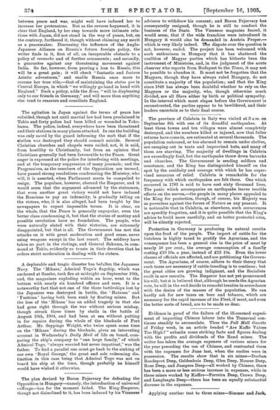The plan devised by Baron Fejervary for defeating the Opposition
in Hungary—namely, the introduction of universal suffrage—has for the moment failed. The King-Emperor, though not disinclined to it, has been induced by his Viennese
advisers to withdraw his consent; and Baron Fejervary has consequently resigned, though he is still to conduct the business of the State. The Viennese magnates feared, it would seem, that if the wide franchise were introduced in Hungary it would also be demanded in Austria Proper,—• which is very likely indeed. The dispute over the question is not, however, ended. The project has been welcomed with such enthusiasm in Hungary that it has shattered the coalition of Magyar parties which has hitherto been the instrument of Ministries, and, in the judgment of the acute observer who reports from Budapest to the Times, it may not be possible to abandon it. It must not be forgotten that the Magyars, though they have always ruled Hungary, do not constitute a majority of the population; and that the King since 1848 has always been doubtful whether to rely on the Magyars or the majority, who, though otherwise much divided, are all Slays either by birth or political sympathy. In the interval which must elapse before the Government is reconstructed, the parties appear to be bewildered, and their leaders uncertain as to their final course.










































 Previous page
Previous page